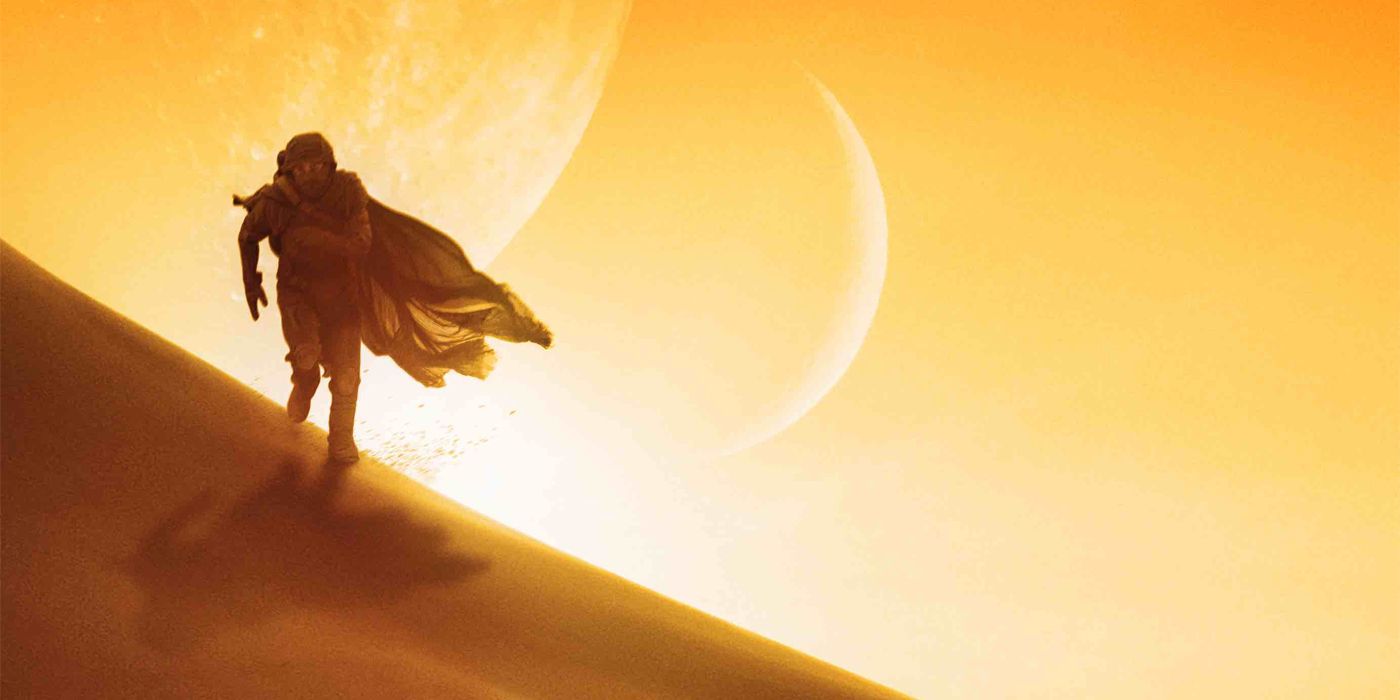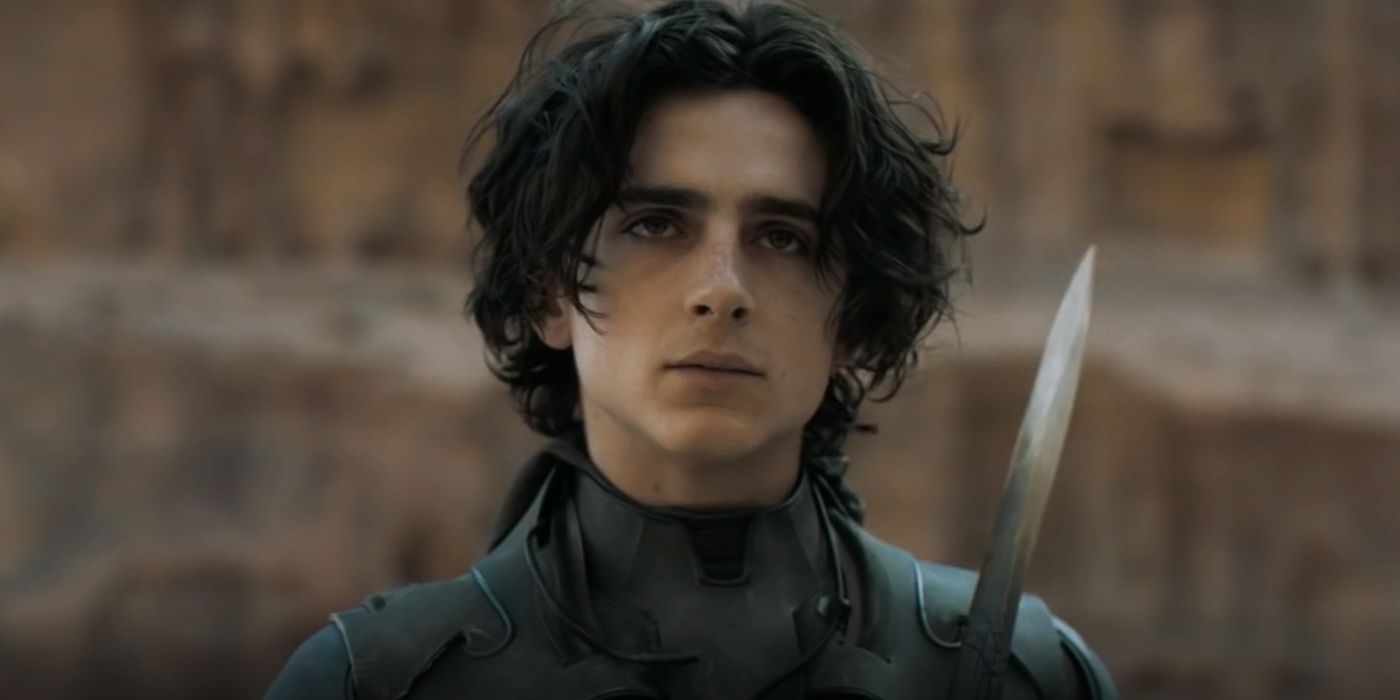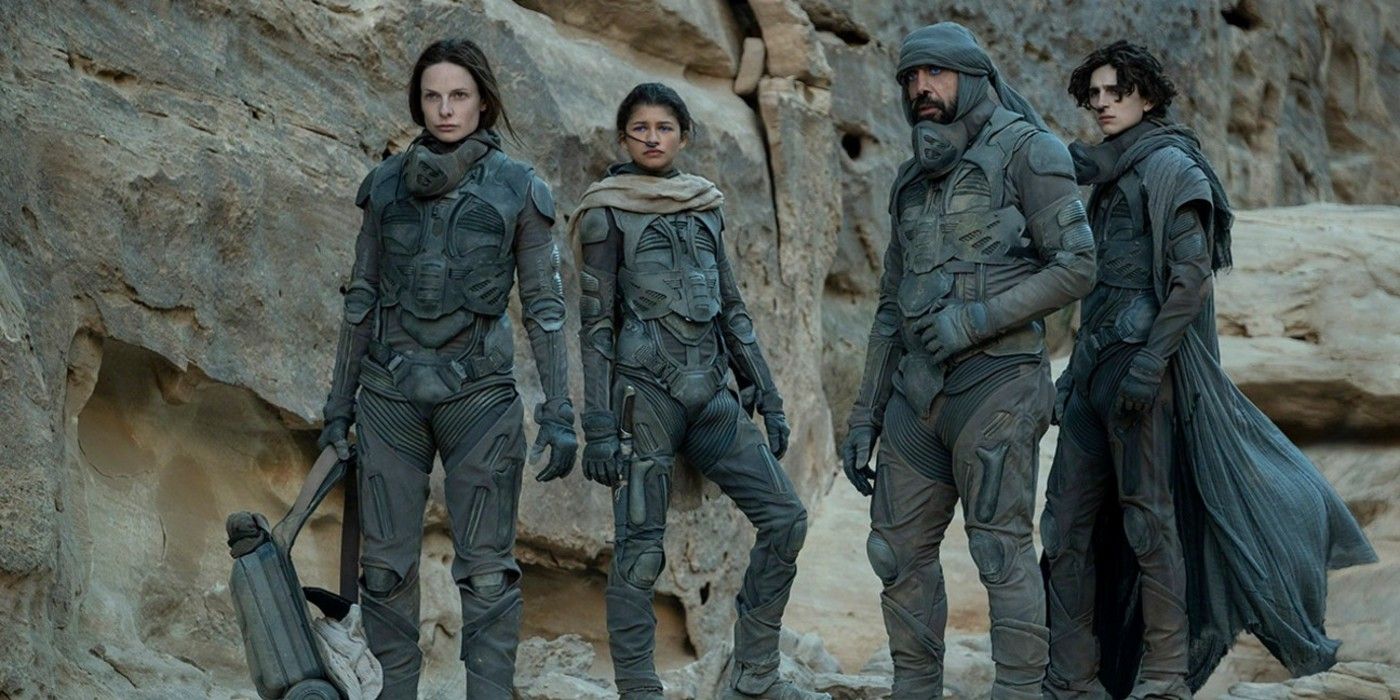What justifies a large-format big-screen experience? A possible answer: spaceships and deserts. Between the rise of streaming services and theaters still recovering from the COVID-19 pandemic, there's been an ongoing debate lately about whether or not movies need a big-screen opening. The two biggest counter-arguments, all-time masterpieces that need the big screen to be fully enjoyed, are 2001: A Space Odyssey and Lawrence of Arabia. When Denis Villeneuve says his new version of Dune needs to be seen in theaters, ideally IMAX ones, it's because his movie is his attempt at making 2001 and Lawrence at the same time.
Aside from their 70mm grandeur, 2001 and Lawrence of Arabia are very different experiences. Lawrence is a personal, emotional story, whereas 2001 is a film driven by big ideas and bold images. The tearjerker ending to Arrival aside, Villeneuve has always been a more Kubrickian director, and 2021's Dune leans more towards theme and spectacle than humanity. However, Dune establishes enough interest in its characters and blends the two epic films' styles to build an interesting story that, at this point, feels not quite finished.
Despite the marketing calling this movie Dune, the actual title shown on-screen is Dune: Part 1. Unlike New Line with The Lord of the Rings films, Warner Bros. did not order Dune: Part 2's production alongside Dune. The film ends right in the middle of Frank Herbert's classic sci-fi novel. While that choice is logical, it's somewhat anticlimactic and doesn't feel like a complete story at all. Whether Villeneuve will get to finish adapting the book is entirely dependent on Part 1's box office, a challenging proposition with a pandemic still going, and WB putting the film on HBO Max simultaneously and against the director's wishes.
One thing that should help the film commercially is that this Dune actually makes sense. Herbert's novel is an infamously challenging read, dropping readers into its elaborate universe and expecting them to keep up with the barrage of made-up words (or patiently shift through the glossary at the back of the book). David Lynch's 1984 adaptation infamously bombed because it tried to cram the entire book into one film, making things even more confusing. Splitting the book into two parts is a huge boon for the new film's comprehensibility: everything viewers need to understand is either explained or clearly visualized. Any weird things left unexplained are simply background details to add to the universe's mystique.
Put simply, Dune is about three factions fighting over the Arrakis, a planet that's the source of a valuable all-purpose resource called Spice. The planet's native inhabitants are the Fremen, who've been oppressed by the perversely evil Harkonnens. House Atreides has taken over Arrakis from the Harkonnens with the promise to rule peacefully, but the Fremen are understandably distrusting of these new invaders -- and the Harkonnen threat is far from gone. It's Game of Thrones-style political intrigue in a setting that helped inspire Star Wars.
The protagonist, Paul Atreides (Timothee Chalamet), is the son of Duke Leto Atreides (Oscar Isaac) and Lady Jessica (Rebecca Fergusson), a concubine from the magical Bene Gesserit sisterhood. Being trained for both his father's political power and his mother's supernatural abilities, Paul is already destined for great things by bloodline. His natural connection with the Fremen implies that he might just be their prophesied chosen one. Most significant among his powers are his visions of the future, which double as a method for Arrival-esque non-linear storytelling and as a way to essentially work teasers for Dune Part 2 into Dune Part 1.
Paul is reluctant about his destiny and has understandably complicated feelings about his parents. However, his journey has really just begun in this movie. The real scene-stealer character in Dune Part 1 is Paul's warrior mentor Duncan Idaho (Jason Momoa), who almost singlehandedly lends the movie a sense of humor. Villeneuve and co-writers Jon Spaihts and Eric Roth made a smart choice to emphasize the book's female characters further. The Atreides' mother-son relationship has more impact than the father-son one. Additionally, the likable ecologist Dr. Liet-Kynes (Sharon Duncan-Brewster) from the science-fiction novel has been gender-swapped. Zendaya fans, however, will have to wait to see more of her as Chani, who has an incredible on-screen presence but overall few scenes before the credits roll.
Dune is a transporting cinematic experience, and parts of it are downright awesome. Greg Fraser's IMAX-scale cinematography is more immersive than any 3D, and the interplay of light, shadow, and special effects are as atmospheric as Villeneuve's Blade Runner 2049. The battle scenes are few but thrilling, and the sandworms are terrifying. Hans Zimmer provides what might be the most memorable epic musical score since his work on Pirates of the Caribbean. Where it falls short of greatness is how incomplete its story is -- a problem that should be remedied with Part 2.
Dune premieres in theaters and on HBO Max on Oct. 22.



